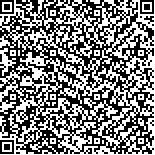本文已被:浏览 678次 下载 428次
Received:December 07, 2023 Published Online:March 20, 2024
Received:December 07, 2023 Published Online:March 20, 2024
中文摘要: 目的 采用基于乳腺超声灰阶图像和弹性图像的深度学习(DL)技术构建一个预测模型,并探讨该模型在乳腺病灶良恶性鉴别中的诊断效能。方法 回顾性收集2020年5月至2021年4月于临沂市人民医院乳腺外科接受手术治疗患者的乳腺病灶共1 000个,包括超声图像及相关临床病理资料,选择每个病灶最大切面的超声灰阶图像及弹性图像,按照7∶2∶1的比例随机将病灶分为训练集、验证集和测试集;应用训练集和验证集的病灶图像基于神经网络构建预测模型,应用测试集病灶图像检测模型的诊断效能;邀请四位超声医生分别阅读测试集病灶的超声图像,比较模型与不同年资医生之间的诊断效能。结果 DL预测模型对乳腺病灶诊断的受试者工作特征曲线(ROC)曲线下面积(AUC)值(0.907)高于所有医生,差异有统计学意义(P<0.05);高年资医生单独阅片诊断的平均AUC值(0.835)高于低年资医生(0.719),差异有统计学意义(P<0.05)。模型辅助低年资医生诊断测试集乳腺病灶平均AUC值为0.806,模型辅助高年资医生诊断测试集乳腺病灶平均AUC值为0.864,经过模型辅助阅片后,不同年资医生的诊断效能均有提升,对低年资医生AUC值提升幅度更明显,差异有统计学意义(P<0.05)。DL模型辅助低年资医生阅片后其AUC值与高年资医生单独阅片AUC值比较差异无统计学意义(P>0.05)。结论 基于双模态超声DL预测模型可以显著提高医生对乳腺病灶良恶性鉴别的诊断效能。
Abstract:Objective To develop a predictive model using deep learning (DL) techniques based on breast ultrasound grayscale images and elastography, and to explore the diagnostic efficacy of this model in differentiating benign from malignant breast lesions. Methods Data of 1 000 breast lesions from patients who underwent surgical treatment at Linyi People's Hospital Breast Surgery Department from May 2020 to April 2021 were collected retrospectively. including ultrasound images and related clinical pathological information. The ultrasound grayscale image and elastography of the largest section of each lesion were selected and randomly divided into training, validation, and test sets at a ratio of 7∶2∶1. A predictive model was constructed based on neural networks using the training and validation sets, and the diagnostic efficacy of the model was tested with the test set images. Four sonographers were invited to read the test set ultrasound images independently, and their diagnostic efficacies were compared with the model's performance. Results The area under the curve (AUC) value (0.907) of the receiver operating characteristic curve (ROC) of DL model for breast lesion diagnosis was higher than all participating sonographers, with a statistically significant difference (P<0.05). The average AUC value for the diagnosis by senior sonographers (0.835) was higher than that for junior sonographers (0.719), with a statistically significant difference (P<0.05). When the model assisted junior sonographers and senior sonographers in diagnosing the test set breast lesions, the average AUC value was 0.806 and 0.864, respectively.〖LM〗 After assistance from the model, the diagnostic efficacy of sonographers of different experience levels improved, with a more significant increase for junior sonographers (P<0.05). Notably, there was no statistically significant difference in the AUC values between the junior sonographers assisted by the DL model and the senior sonographers reading alone (P>0.05). Conclusion A predictive model based on dual-modality ultrasound DL can significantly improve the diagnostic efficacy of sonographers in differentiating benign from malignant breast lesions.
keywords: Deep learning Neural network Breast cancer Ultrasound Elastic imaging Grayscale image Prediction model Artificial intelligence
文章编号: 中图分类号:R737.9 TP391.4 文献标志码:A
基金项目:
引用文本:
